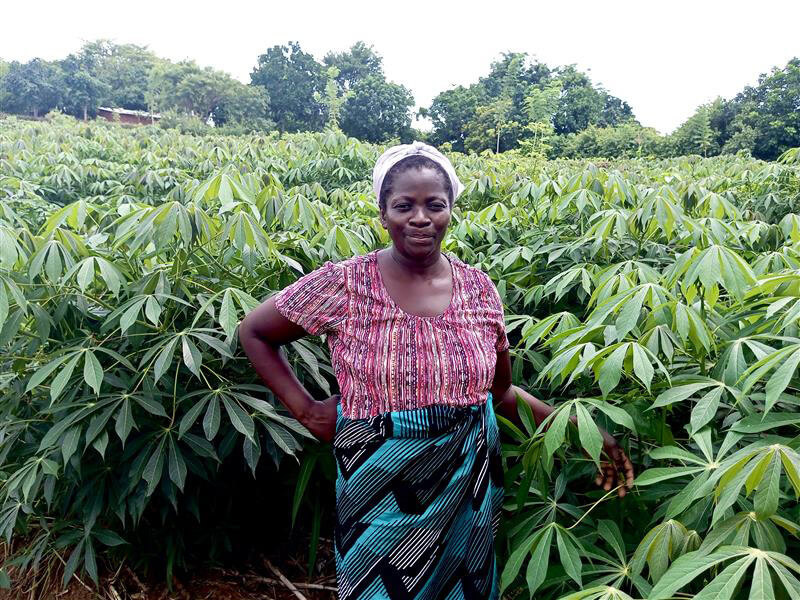How Zambia’s farmers are beating the worst drought in a century

In 2024, the worst drought in a century hit Zambia’s small-scale farmers hard. Fields dried up, harvests shrank, and families faced tough choices about how to feed themselves. Magret Banda, 68, from Petauke district, has been farming for decades. When the rains failed last year, many farmers in her community lost everything. But Magret had something different—a drought-tolerant crop that could withstand the dry conditions.
She had planted cassava. With support from COMACO, she had learned conservation farming techniques and adopted climate-resilient crops. When the drought came, her cassava grew strong. Instead of losing her income, she expanded her farm—planting even more cassava on two additional acres. “Cassava has a good market and has helped me earn money even during droughts,” she says.
Across Zambia, close to 30,000 small-scale farmers are adapting to climate change with COMACO with smarter farming techniques—many for the first time.
Christopher Likonde, from Mumbwa, used to spend a huge portion of his income on fertilizers and pesticides—a costly and unsustainable cycle. After joining COMACO, he learned how to farm differently. Instead of chemical fertilizers, he planted Gliricidia Sepium—a fast-growing tree that naturally enriches the soil, reduces pests, and provides shade. His costs dropped, and his yields improved. “I advise farmers to plant Gliricidia because it has changed my life,” says Christopher. “It can be used for fencing, shade, green manure, and even as a natural pesticide.”
Magret and Christopher are part of a bigger movement—one that’s building food security from the ground up.
With COMACO’s network of cooperatives:
- 26,253 farmers were trained in regenerative farming in 2024.
- 152 farmer leaders were equipped with skills in drought mitigation, including cassava planting, compost-making, and small livestock rearing.
- 70 million trees are being planted for agroforestry, helping farmers build long-term soil health and protect against drought.
- Farmers are accessing better markets—ensuring their harvests translate to income and stability.
And women like Magret are leading the way. In rural Zambia, where economic opportunities often favour men, more than 50% of COMACO’s farmers are women, meaning more girls are staying in school, more families are thriving, and communities are more resilient.